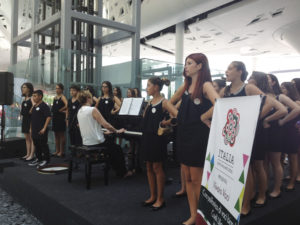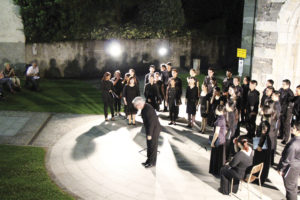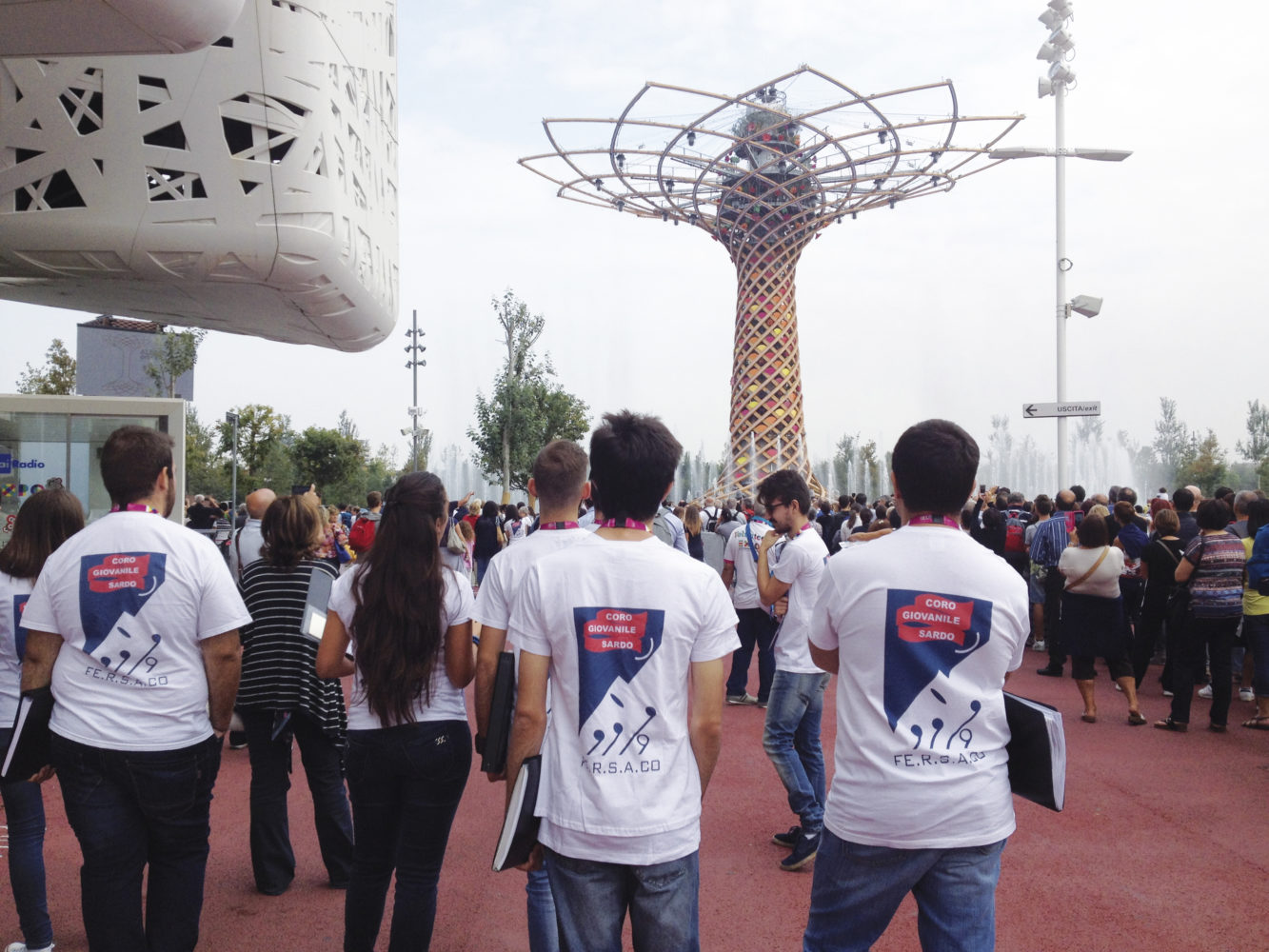By Francesco Leonardi, IFCM Project Manager
It is not that long ago that the EXPO 2015 ended, which was held in Milan from May to October 2015. This event, which is held every five years, is assigned to a different city each time and gathers together the best that the various countries of the world have to offer on a specific theme. The Expo theme in Milan was Feeding the Planet, Energy for Life.
During the planning of the event, the Jubilate Music Association came up with the idea of adding a festival dedicated to choral music events entitled “Feeding Souls, Thanking for Food”, in order to represent this ancient art form as a common expression of all cultures and traditions of the world. It was the first time in the World Exposition’s history that significant space was given to choral music in which it was made the real star of the show.

The initial project, which was prepared in 2012, involved the participation of at least one choir from each of the exhibiting countries in order to organise a large choir festival due to be held on the EXPO site that was located throughout the whole region of Lombardy. For this purpose IFCM was involved in setting up an Artistic Commission in order to share knowledge on choral activities present on every continent. This group of renowned professionals was given the task of setting up a database of choirs from all nations of the world, thus helping the Jubilate Music Association (organiser of the The Song Factory festival for more than 20 years) to formulate a project. The working group was formed by Stephen Leek, Jonathan Velasco, Theodora Pavlovitch and Christian Grases. Each member of the working group brought to the table their knowledge of the level of the choruses in their region, thus contributing to drawing a comprehensive picture.
The first step was to take a census of the diffusion of choral singing, and the results obtained, regardless of their consequences on the initial project, giving us the opportunity to check through the eyes of the Artistic Commission appointed by IFCM as the choral music is widespread in many countries, thanks to the work done by IFCM since its creation.

The work performed also indicated possible lines of action for IFCM, highlighting the countries that will be the subject of specific actions for the dissemination of choral music in the future. The actions taken for the initial project included making contact with the diplomatic representations of the various countries, starting with the Milan Consulates, but even going to national Embassies in Italy to get, in some cases, the Ministers of Culture. So, 78 countries were involved at different levels in the project, and this has allowed IFCM to make contact with these countries as a worldwide representative of choral music. This was an important step, because it presented the choral world as an organic whole at supranational level. This activity has also helped us to identify the choral activities of each nation, allowing us to witness a culture and a history beyond national borders and that it is therefore capable of representing the uniqueness of a nation in a global context.
Certainly, there is still a long way to go before choral singing is universally recognised and financially supported as a cultural testimony to the historical roots of each nation and as a cultural ambassador of a country, but we think that this attempt was a small step in the right direction, perhaps taking a little step closer to IFCM’s goal of “Ensuring every citizen of the world has full access to choral music as an art form, helping to preserve choral traditions and cultural diversity and encouraging the development of choral music in the world”.
Edited by Charlotte Sullivan, UK

